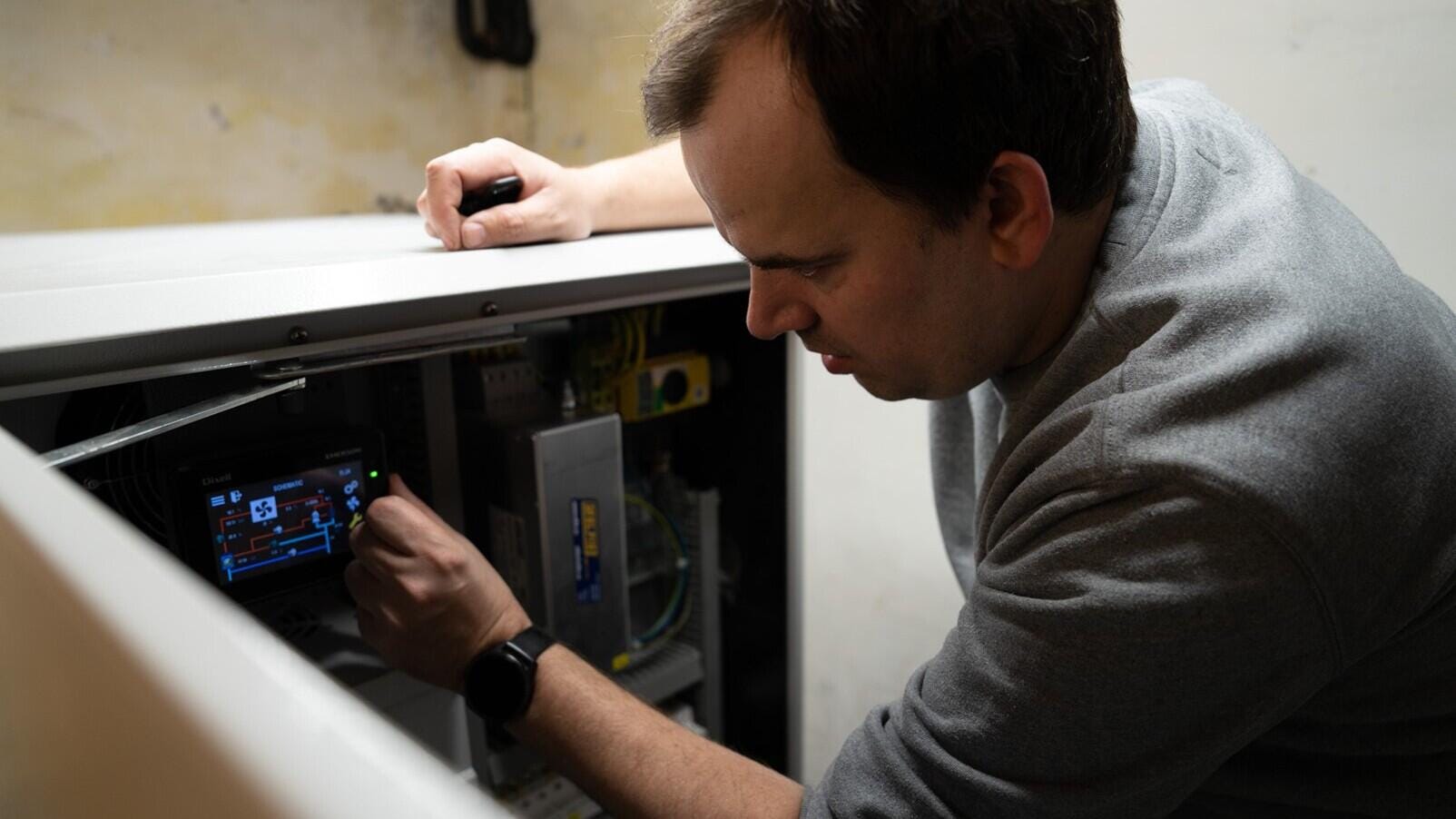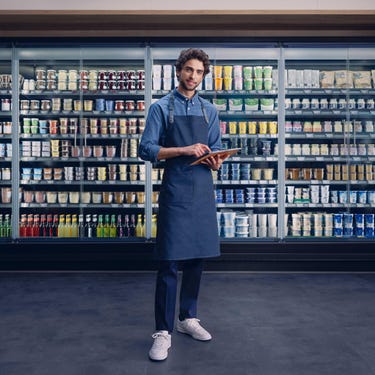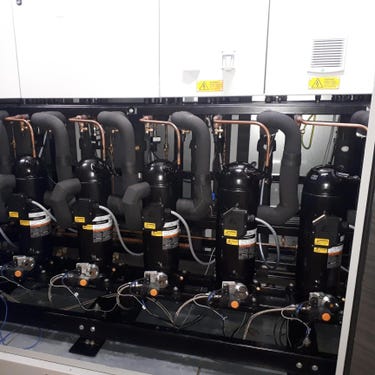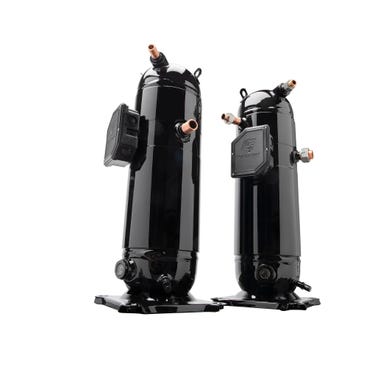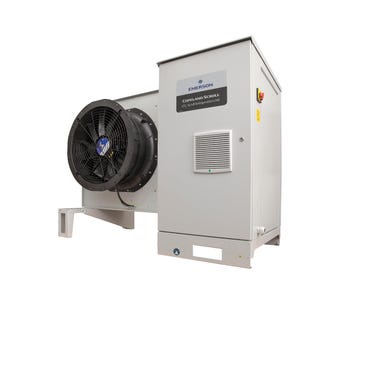Korboo’s owner Karl Bolle opted for Copeland’s CO₂ scroll units, applauding The New Cool for its efficiency and lower energy consumption.
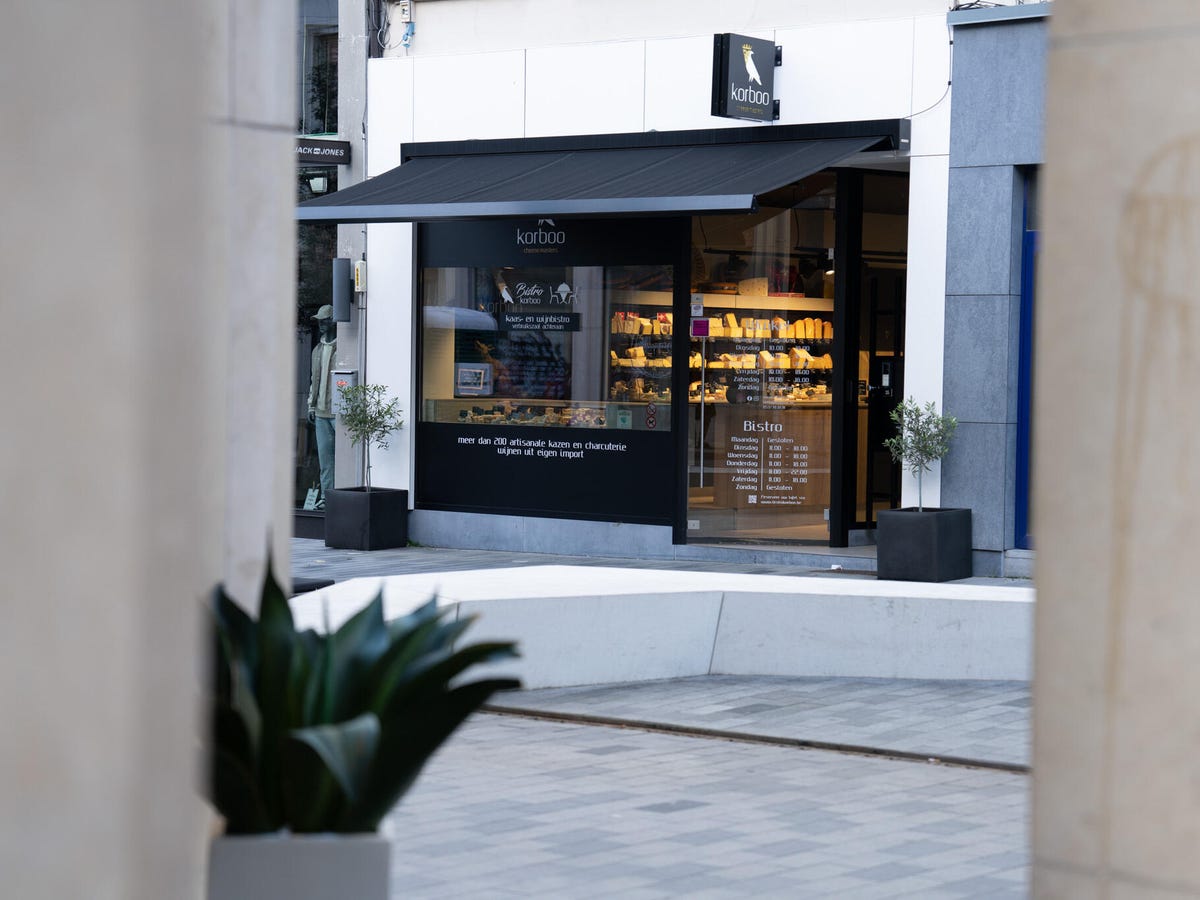
Case Study Belgian Cheese Store Korboo
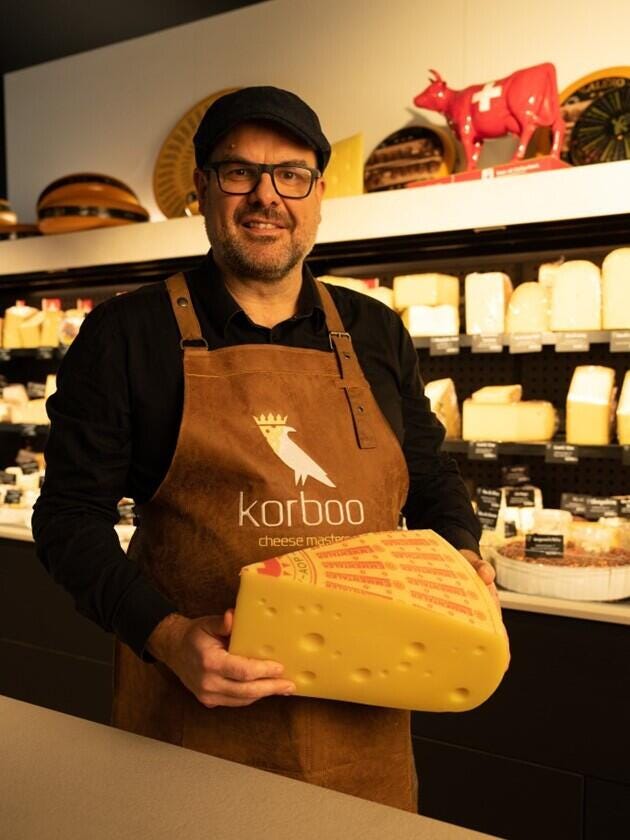
A Success Story
Korboo, a Belgian gourmet cheese store founded in 2020 by Karl Bolle, has earned a loyal clientele with its recipe of more than 200 types of cheese, mostly from regional producers. The company became so successful that it decided to open a second store with an integrated bistro in the city center of Aalst. To implement this plan, Korboo teamed up with Reinout Carmeliet, who shares Karl’s expertise and passion for cheese and wine.
Sustainability and Efficiency Combined
“Sustainability aspects and low energy consumption were key for us,” explains Korboo’s Reinout Carmeliet. Thus, the two business partners turned to Bossuyt, a specialist company for store furnishings and equipment, and Frigro, a technology-driven wholesaler with long-standing cooling expertise. The result: an attractive and functional store with a refrigeration solution based on the innovative Copeland CO₂ scroll units.
“When Bossuyt came up with a solution, the CO₂ refrigeration unit, it was new to us. They had to explain the benefits to us and then we quickly saw that sustainability is one of the major aspects,” says Karl Bolle. “There is a price premium compared to a traditional unit, but it is subsidized by the government because of the sustainability aspect. And in the long-term perspective of 10 to 15 years, it only shows benefits. And we are already seeing a significant decrease in energy consumption.”
Compared to the first Korboo store which uses traditional refrigeration, the new store has a larger system with more cooling capacity, and still has better efficiency and lower energy consumption, Bolle summarizes. “Besides, we have had no downtime. That is also important for us and our products – to have a reliable system you can count on.”
Customized Refrigeration for Complex Needs
“The compactness of the system also played a major role due to limited space available on site,” says Reinout Carmeliet. But that was not all: “Other important aspects were availability and speed of delivery and installation, since we had to meet a tight deadline for the store opening,” adds Karl Bolle. In close coordination, Frigro and Bossuyt developed a solution that exactly met the requirements. Both recommended the use of CO₂ as a natural and future-proof refrigerant, and in particular, the new Copeland CO₂ scroll refrigeration unit to efficiently use its advantages in a smaller store.
Frigro and Bossuyt identified the need for a total refrigeration capacity of 12 kW to meet the cooling demand of the new Korboo store. They chose the Copeland CO₂ scroll unit OME-16 (medium temperature) as the best option to supply the 6 evaporators in the store: 4 display cases with a combined side length of 8 meters and 2 fridges.
CO₂ as a Natural and Future-Proof Refrigerant
“The key arguments for CO₂ scroll compared to HFC refrigerants are the more stable installation and the return on investment. Plus, there are fewer interventions, fewer regulations, fewer reports to consider. In the past, CO₂ systems were too large to install in smaller shops. That has changed now that smaller units with lower capacities are available.”
Steven Willaert, Head of Technical Department at Frigro
Installation Supported by Modular Design
Because of the shop architecture, Bossuyt decided to take advantage of the modular design of the system and its ability for split installation: The compressor compartment was installed in the basement of the building, while the gas cooler was positioned separately on the roof. The low noise emissions of the gas cooler allow such outdoor installation without any problems, even in noise-sensitive environments within urban areas. “Because of its EC vents, the cooler operates very quietly,” Frigro’s Head of Technical Department Steven Willaert explains.
The compactness of the refrigeration unit paid off when installing the compressor compartment in the basement. To get to the basement, there was only a narrow staircase that was about 90 cm wide. Nevertheless, Bossuyt managed to get the compressor and control cabinet down there, emphasizes Technology Manager Jeroen Deweirt: “The modular design, the component separability and, above
all, the compactness were important selection criteria for the Copeland refrigeration units. These features are an asset in any installation and especially helpful in confined environments like Korboo’s.”
Commissioning Faciliated and Accelerated
While the Copeland CO₂ scroll refrigeration units’ modularity simplified installation, the user-friendly electronics concept proved to be a major advantage during start-up. No special start-up procedure was required and the unit’s advanced electronics, including pre-set parameters, enabled plug-and-play commissioning. All in all, this shortened the process significantly.
The Visotouch colour display, on which all relevant system parameters can be queried and set, played a central role. “The large display is the biggest advantage,” explains Jeroen Deweirt from the installer’s point of view. “It means we no longer have to connect a laptop to get real-time feedback on the installation, which is very helpful.” In addition, the practical design of the compressor cabinet also contributed to the fast startup. A hinged door and 360-degree component accessibility supported installers in their work, which in turn translated into additional time savings during commissioning. Thus, Korboo managed to meet the deadline for opening the store.
All relevant system parameters can be queried and set on the Visotouch colour display.
Efficiency and Reliability: The Key to Success
For both Bossuyt and Frigro, it was the very first customer project with the new Copeland CO₂ scroll refrigeration units. However, based on their previous experiences with the reliability of Copeland products, Frigro was confident that the units would perform as expected. “When a leading manufacturer like Copeland brings a future-oriented technology like ‘The New Cool’ to market, it sparks our strong interest. Already in the past, we were among the first to market with Copeland CO₂ stream units, and this good experience has strengthened our collaboration,” states Frigro’s Steven Willaert.
Installer Bossuyt is also satisfied with the results and the fact that the unit has operated reliably since commissioning, with no unplanned downtime. “It was our first project with CO₂ units, but definitely not our last. I see the technology as suitable for small stores, but also large butcher stores, for example,” adds Jeroen Deweirt. Most importantly, their customer Korboo has achieved its goals. Compared to the first Korboo store which uses traditional refrigeration, the new store has a larger system with more cooling capacity, and still has better efficiency and lower energy consumption, Bolle summarizes.
